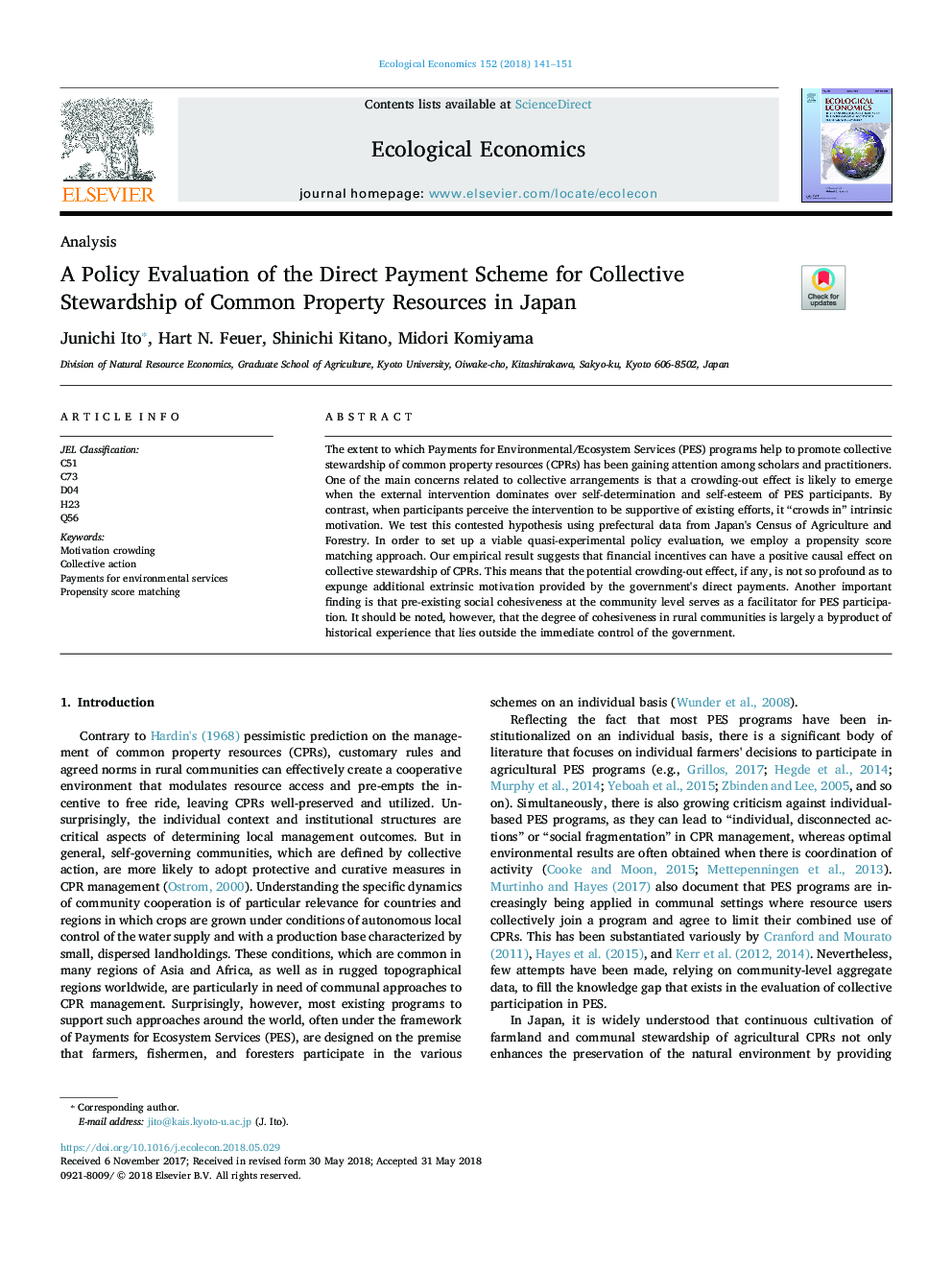| Article ID | Journal | Published Year | Pages | File Type |
|---|---|---|---|---|
| 7343804 | Ecological Economics | 2018 | 11 Pages |
Abstract
The extent to which Payments for Environmental/Ecosystem Services (PES) programs help to promote collective stewardship of common property resources (CPRs) has been gaining attention among scholars and practitioners. One of the main concerns related to collective arrangements is that a crowding-out effect is likely to emerge when the external intervention dominates over self-determination and self-esteem of PES participants. By contrast, when participants perceive the intervention to be supportive of existing efforts, it “crowds in” intrinsic motivation. We test this contested hypothesis using prefectural data from Japan's Census of Agriculture and Forestry. In order to set up a viable quasi-experimental policy evaluation, we employ a propensity score matching approach. Our empirical result suggests that financial incentives can have a positive causal effect on collective stewardship of CPRs. This means that the potential crowding-out effect, if any, is not so profound as to expunge additional extrinsic motivation provided by the government's direct payments. Another important finding is that pre-existing social cohesiveness at the community level serves as a facilitator for PES participation. It should be noted, however, that the degree of cohesiveness in rural communities is largely a byproduct of historical experience that lies outside the immediate control of the government.
Keywords
Related Topics
Life Sciences
Agricultural and Biological Sciences
Ecology, Evolution, Behavior and Systematics
Authors
Junichi Ito, Hart N. Feuer, Shinichi Kitano, Midori Komiyama,
